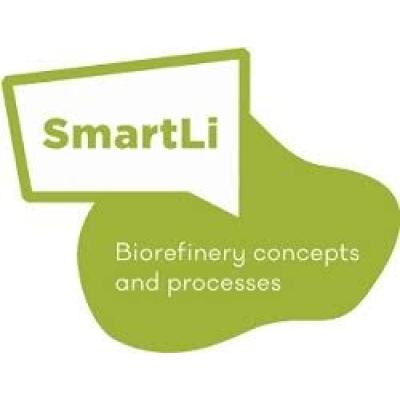R+D

Research, development and innovation are in our DNA. That’s why we’ve created Foresa Technologies, a spin-off of Foresa whereby we combine innovation, sustainability and industrial property. Made of a multidisciplinary team, we work in the application areas of Foresa’s products, processes and services. Our sectors include: wood, construction, furniture, insulation, fuels, environmental applications, automotive, etc. We also actively participate in national and international forums related to the chemical industry and its applications, in collaborative and development projects between companies, universities and technology centres, as well as in many other collaborative projects that you can see here.
SUSPOL
Programme:
HORIZON 2020 – EJD
Period:
2015 – 2019
Project:
SUSPOL-EJD is a Joint European PhD in “Organocatalysis and Sustainable Polymers” that will offer ten early-stage researchers the chance to be awarded double PhD degrees in two different countries.
Project:
SUSPOL-EJD is a Joint European PhD in “Organocatalysis and Sustainable Polymers” that will offer ten early-stage researchers the chance to be awarded double PhD degrees in two different countries.
The goal of this initiative is excellence in the development of high-quality training opportunities for junior researchers in the area of sustainable organocatalysis and polymer production.
Objetive:
The ultimate goal is to forge the scientists who will be the future leaders overseeing the transition from organocatalysis in the laboratory to sustainable industrial processes and products.
Research and training areas include organic chemistry, catalysis, modelling, polymer engineering, green chemistry, sustainable processes, renewable products, polymer latex, coatings, biomaterials, pharmaceuticals and adhesives. The inclusion of several industrial partners makes the project highly cross-sectoral. The programme’s research and training is highly innovative as it combines frontier research projects and industrial developments.
Academic Collaborators:
The University of Bordeaux (France), the University of the Basque Country (Spain), the University of Mons (Belgium) and the University of Warwick (UK). Industrial Collaborators: BASF (Germany), Purac Corbion (Netherlands), Synthomer (UK), IBM (Switzerland and USA) and Foresa (Spain).
PALM2WAX

Programme:
EUREKA
Period:
2015 – 2017
Project:
Design, develop and validate competitive alternatives to petroleum-derived paraffin wax emulsions.
Project:
Design, develop and validate competitive alternatives to petroleum-derived paraffin wax emulsions.
Technical objective: To design and manufacture an emulsion based on vegetable waxes that provides the same hydrophobic properties to wood-based panels (wood composites) as petroleum-based paraffins.
Commercial objective: To bring to the market an alternative family of emulsions to the current one, in order to open up a new bio-alternative on the market which does not exist at the time of writing. At the same time, this new emulsion should have a cost that allows it to compete with current options when aiming to obtain a premium product, as well as the use of raw materials that are not dependent on feed stocks.
Environmental objective: To generate a “green” product based on sustainable and environmentally friendly raw materials while reducing the carbon footprint of the final product.
Academic Collaborators:
Croda.
SMARTLI
Programme:
H2020-BBI-PPP-2014-1 BBI.VC2.R4
Period:
2016 – 2019
Project:
SmartLi aims to develop technologies for the industrial manufacture of biomaterials using technical lignins as raw material.
Project:
SmartLi aims to develop technologies for the industrial manufacture of biomaterials using technical lignins as raw material.
Objetive:
The technical lignins included in the study are kraft lignin, lignosulphonates and bleaching effluents, all from abundant lignin sources. Technical lignins are not directly applicable for the production of biomaterials. Therefore, pre-treatments will be developed to reduce its sulphur content and provide consistent quality. Thermal pre-treatments are also expected to improve the properties of lignin for use as reinforcement in composite materials, while fractionation and catalytic degradation pre-treatments will produce lignin fractions (reactive oligomers) to be tested in resins for different applications: phenolic resins for MDF manufacturing, plywood and impregnation, polyurethanes and epoxy. A full Life Cycle Assessment, including a dynamic process, will also support the study.
Academic Collaborators:
FIBIC / Tecnaro Gmbh / AEP Polymers / Fraunhofer / VITO / Metsä Fibre / VTT / SAPPI NETHERLANDS / Foresa / Wood K plus / Prefere Resins Finland Oy / Kotkamills Oy / Andritz Oy.
REHAP

Programme:
H2020-SPIRE-2015
Period:
2016 – 2020
Project:
Reduction of greenhouse gas Emissions transforming Harvesting waste into high Added value.
Project:
Reduction of greenhouse gas Emissions transforming Harvesting waste into high Added value.
Europe’s position in the production of biochemicals from biomass and by-products is limited to a few compounds, while its demand is one of the largest in the world. However, Europe has many world-leading chemical companies.
Objetive:
Lignocellulosic waste is one of the most abundant resources that does not compete with the food chain. The 16 REHAP (Reduction of greenhouse gas Emissions, transforming Harvesting waste into high Added value) partners aim to find new uses for agricultural (wheat straw) and forestry (bark) residues through their recovery both from primary (sugars, lignin, tannins) and secondary (sugar acids, carboxylic acids, aromatics and resins) processes, taking into account ecological constructions as business lines. The project will reduce fossil fuel resource use by 80-100%, and energy use and CO2 emissions by over 30%. Specifically, building blocks (1,4- and 2,3-butanediol, stereopolyols), materials (PUs, phenolic resins, modified hydrolysis lignin) and products (wood-based panels, insulating foams, cement, adhesive) will be obtained:
- Tannins and carbohydrates from forestry waste into bio-phenolic resins for wood-based panels and isocyanate-free polyurethanes (PU) for insulating foams, respectively.
- Lignin and carbohydrates from agricultural waste to be converted into bio-phenolic resins for wood panels and biosuperplasticisers for cement, and biosterpolyols for adhesives, respectively.
- Fire retardant lignins and sugar-based additives will also be developed.
The developed processing technologies (chemo/thermo/enzymatic and fermentation) will be optimised at pilot scale (TRL6-7) for further exploitation and replication of the results. All products will be integrated into a prototype to demonstrate industrial applicability in the Green Building sector. Life cycle and cost assessment, market analysis, business plan, waste management strategy and measures for future standardisation will be carried out throughout the project, using a systemic perspective approach.
Academic Collaborators:
Tecnalia / VTT / Unia / Rina Consulting / Collanti Concorde / Rampf / Insight Publishers LTD / Lafarge / BBEPP / Novamont / CUSA / CTXI / Biosyncaucho / Cartif
WEBSITE: www.bbeu.org/projects/rehap/
Watch video: https://www.youtube.com/watch?v=DOBoxBb6smg


